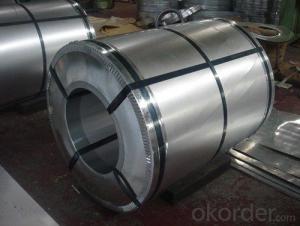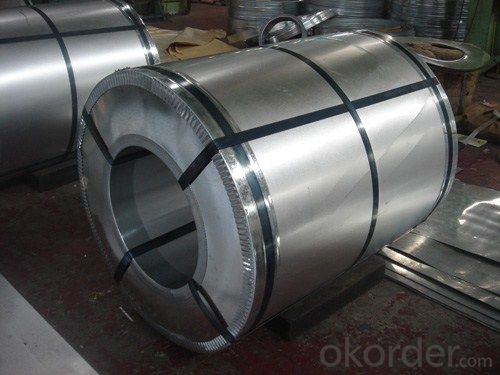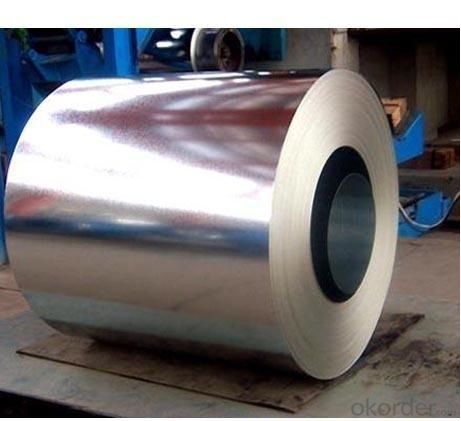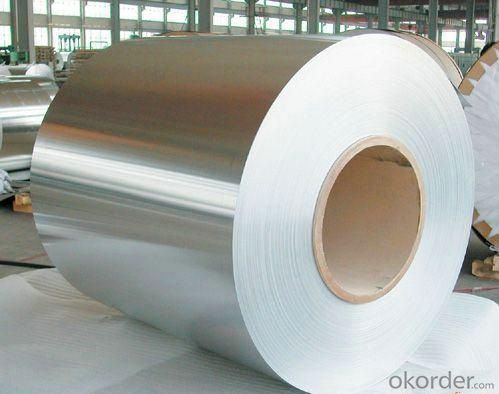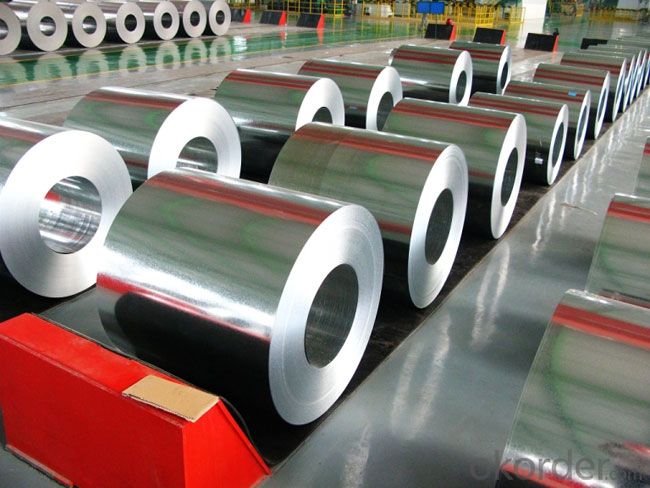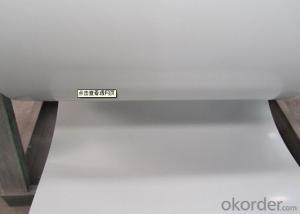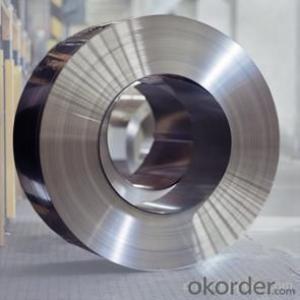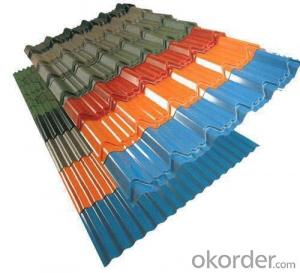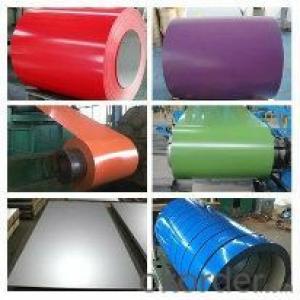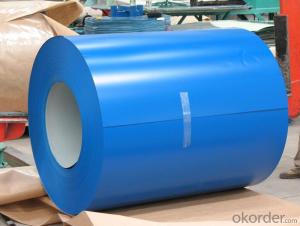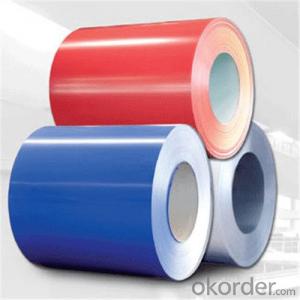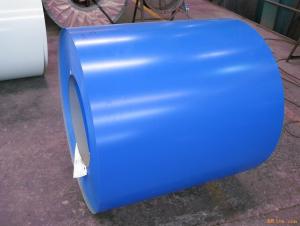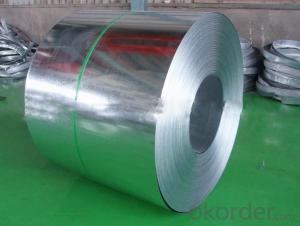ZTHOT-DIP GALVANIZED STEEL HOT-DIP GALVANIZED STEEL
- Loading Port:
- Tianjin
- Payment Terms:
- TT OR LC
- Min Order Qty:
- 20 m.t.
- Supply Capability:
- 8000 m.t./month
OKorder Service Pledge
OKorder Financial Service
You Might Also Like
HOT-DIP GALVANIZED STEEL 72104910
THICKNESS:0.18mm-1.5mm
WIDTH:900mm-1250mm
COATING MASS:Z30-Z275
SPANGLE:Regular Spangle,Minimized Spangle,Zero Spangle
SURFACE TREATMENT:N0on or Chromated,Non or Oiled,Non or Anti Finger Print
COIL INNER DIAMETER:508mm/610mm
COIL WEIGHT:3mt-7mt
In continuous units in cold rolled steel strip, galvanized steel (electro galvanized and hot dip galvanized) as substrate, after surface pretreatment (degreasing and science processing), using the method of roll coating, coated with a layer or multi-layer liquid coating of plate, after baking and cooling income is the coating steel plate. Because the coating can have a variety of colors, on the habits of the coated steel sheet is called color coating steel plate. Because the coating is carried out before the sheet metal forming, in foreign countries which is called pre coating plate.
Color coated steel sheet is an organic coating coating on the steel surface, it has the advantages of beautiful appearance, bright color, high strength, good corrosion resistance, easy processing molding, but also allows the user to reduce costs, reduce pollution.
From the United States in 1935 to establish the first continuously coated steel line to begin, color coated steel plate has been widely applied, the current color coated plate varieties, about more than 600 kinds, the advantages of color coated sheet and organic polymer and steel plate of the two, which has good colorability, organic polymer molding, corrosion resistance and decorative, and steel plate with high strength and easy processing, can easily be punching cutting, bending, deep drawing processing. Made this makes organic coated steel sheet products have excellent practical, decorative, workability, durability.
- Q: How are steel coils coated or painted?
- Steel coils are coated or painted through a process called coil coating, which involves cleaning the surface, applying a primer, and then adding a topcoat using various techniques such as roll coating, spray coating, or electrostatic coating. This ensures that the steel coils have a protective layer and an aesthetically pleasing finish.
- Q: I need a machine which can produce steel pipes, but I don't know where to look...If you want me to state dimensions etc. just say...Thanks :)
- I'll answer both those questions. Your first question is: Who can I buy a Steel Pipe Making Machine? To which I reply: anyone. I'd put great consideration on the age of the person you are giving this machine to, and perhaps their physical ability. Cripples don't work well with steel pipes. Unless you are...beating them with one. Second question is: Where can I buy a Steel Pipe Making Machine? My reply: OKorder, or Steel Pipe Makers Incorporated. You could probably just steal one out of their factories. They have billions, and the actual machines are no bigger than...a bus or two. Just pop one in your backpack on the way out. But honestly, I don't know where to get a steel pipe making machine. BUT! I do know where to get a steel pipe making machine making machine. Ask santa. (BTW: Why do you need the steel pipes? I smell conspiracy!)
- Q: What are the pros and cons to selecting a graphite shaft sand wedge over steel shaft?
- The way to resolve the selection is to go with the shaft that matches the other clubs in your set. If you have steel shafted irons go with steel. You will find the similar feel when you hit shots is most important.
- Q: How do steel coil manufacturers ensure timely delivery?
- Steel coil manufacturers ensure timely delivery through various strategies and measures. First and foremost, they maintain a well-coordinated production and supply chain management system. This includes efficient scheduling of production processes, monitoring of inventory levels, and close coordination with suppliers of raw materials. Additionally, steel coil manufacturers often employ advanced forecasting techniques to predict the demand for their products. By analyzing historical data, market trends, and customer behavior, they can anticipate future orders and plan their production accordingly. This proactive approach minimizes the risk of delays and allows for better resource allocation. Furthermore, manufacturers work closely with transportation and logistics companies to ensure smooth and timely delivery. They establish strategic partnerships and negotiate favorable agreements to facilitate efficient transportation of steel coils to customers. This includes optimizing routes, utilizing reliable carriers, and closely tracking shipments to promptly address any unforeseen issues. Moreover, manufacturers may maintain buffer stocks to mitigate the impact of unexpected disruptions, such as equipment failures or supplier delays. By having a safety stock of finished products, they can quickly respond to urgent orders and maintain their delivery commitments. Lastly, effective communication plays a crucial role in ensuring timely delivery. Steel coil manufacturers maintain open lines of communication with their customers, keeping them informed about production progress and potential delays. This transparency allows for proactive problem-solving and helps in managing customer expectations. In conclusion, steel coil manufacturers ensure timely delivery by maintaining efficient production and supply chain management systems, utilizing advanced forecasting techniques, collaborating with transportation and logistics companies, maintaining buffer stocks, and maintaining effective communication with customers. These strategies collectively enable them to meet delivery deadlines and provide reliable service to their customers.
- Q: Also, what is the top best slow cooker that is 100% stainless steel? Thank you!
- My SS pans are Prestige.
- Q: How do steel coils contribute to the agricultural machinery industry?
- Due to their versatile and durable nature, steel coils play an essential role in the agricultural machinery industry. They are used in various applications and contribute significantly to improving the efficiency and productivity of agricultural machinery. Manufacturing equipment frames and structures is one primary way steel coils contribute to the agricultural machinery industry. These frames provide the necessary strength and stability to withstand the demanding conditions of agricultural operations. Whether it's tractors, harvesters, or tillers, steel coils are utilized to create robust and rigid frames capable of handling heavy loads, vibrations, and impacts. Moreover, steel coils are vital in fabricating components like plow blades, cultivator tines, and seed drills. These components are crucial for soil preparation, seed planting, and crop maintenance. Steel coils provide the necessary strength and resistance to wear and tear, ensuring these components can endure the rigors of agricultural operations and have a prolonged lifespan. Additionally, steel coils are used in manufacturing hydraulic systems and other moving parts in agricultural machinery. These systems are responsible for powering and controlling various functions such as lifting, lowering, and steering. Steel coils provide the necessary strength and flexibility for these systems to function optimally, ensuring smooth and efficient operation of agricultural machinery. Furthermore, the use of steel coils in the construction of agricultural machinery enhances equipment safety and longevity. Steel is renowned for its excellent resistance to corrosion, rust, and extreme weather conditions. By incorporating steel coils in the manufacturing process, equipment remains durable and reliable even in harsh environments, ultimately reducing maintenance costs and improving the overall lifespan of the machinery. In conclusion, the agricultural machinery industry heavily relies on steel coils. Their versatility, strength, and durability are indispensable for manufacturing equipment frames, components, hydraulic systems, and other moving parts. By utilizing steel coils, the agricultural machinery industry can produce robust and efficient equipment capable of withstanding demanding agricultural operations, improving productivity, enhancing safety, and extending the lifespan of the machinery.
- Q: How are steel coils used in the manufacturing of industrial equipment?
- Steel coils are commonly used in the manufacturing of industrial equipment due to their versatility and strength. These coils are typically made from high-quality steel and are shaped into a coil form to facilitate easy transportation and storage. One of the primary uses of steel coils in industrial equipment manufacturing is for the fabrication of structural components. These coils are often cut, shaped, and welded to create various parts and structures that provide support and stability to the equipment. For example, steel coils can be used to construct frames, beams, and brackets that form the backbone of heavy machinery. Steel coils are also used in the production of mechanical components such as gears, shafts, and bearings. These components require high strength and durability to withstand the heavy loads and harsh operating conditions encountered in industrial settings. By using steel coils, manufacturers can ensure that these parts have the necessary strength and resilience to perform reliably. Additionally, steel coils are employed in the manufacturing of equipment surfaces that require corrosion resistance or aesthetic appeal. Steel with specific coatings or finishes can be rolled into coils to create sheets or plates that are used to construct outer casings, panels, or covers for industrial equipment. These coatings not only protect the equipment from environmental factors but also enhance its appearance. Furthermore, steel coils can be transformed into pipes and tubes, which are vital components in many industrial applications. These pipes are used to transport various fluids, gases, or materials within the equipment. The strength and structural integrity of steel coils ensure that the pipes can withstand high pressure, temperature, and mechanical stress, making them suitable for demanding industrial environments. In conclusion, steel coils play a crucial role in the manufacturing of industrial equipment. They are used to fabricate structural components, mechanical parts, surface finishes, and pipes. The versatility, strength, and durability of steel coils make them a preferred choice in the industrial equipment manufacturing industry.
- Q: How are steel coils used in the production of storage systems?
- Steel coils are used in the production of storage systems by being formed into sheets or strips, which are then shaped and welded to create the framework and shelves of the storage units. The high strength and durability of steel make it an ideal material for supporting heavy loads and ensuring the longevity of storage systems.
- Q: In what ways can steel fail in use of buildings ad what can be done to prevent it?
- I am a secretary at a Steel panel making company! But I still can't help you. :(
- Q: How are steel coils used in the production of metal bridges?
- Due to their versatility, strength, and durability, steel coils are a crucial element in the manufacturing of metal bridges. These coils, typically made from high-quality steel alloys, provide the necessary structural integrity required for bridge construction. To begin the process of using steel coils for bridge production, they undergo a series of manufacturing techniques. The coils are uncoiled and straightened to eliminate any distortions or bends. They are then precisely cut into lengths according to the specifications of the bridge design. Once the steel coils have been processed, they are transformed into various structural components used in bridge construction. These components include beams, girders, trusses, and plates. Beams and girders serve as the primary support structure of the bridge, while trusses provide additional support and stability. Plates are used for the bridge deck, providing a surface for vehicles and pedestrians to travel on. Steel coils also play a critical role in the fabrication of bridge connections and joints. These connections are essential for transmitting loads and forces throughout the bridge structure, ensuring its stability and safety. Steel coils are utilized in the creation of various connection elements, such as bolts, nuts, washers, and welded sections. Furthermore, steel coils are commonly employed in the production of bridge reinforcements. Rebar, which is used to strengthen concrete elements within the bridge, is manufactured from steel coils. By enhancing the load-bearing capacity and resistance to bending and tension, these reinforcements strengthen columns, piers, and abutments. In addition to their structural applications, steel coils are also utilized for protective coatings on metal bridges. They can be coated with specialized materials like zinc, epoxy, or paint to prevent corrosion and extend the bridge's lifespan. These coatings are especially important in harsh environments with high levels of moisture, chemicals, and weathering factors, as they help maintain the bridge's structural integrity. Overall, steel coils are the foundation of metal bridge production. They are transformed into various components, connections, reinforcements, and protective coatings that ensure the bridge's strength, durability, and longevity.
Send your message to us
ZTHOT-DIP GALVANIZED STEEL HOT-DIP GALVANIZED STEEL
- Loading Port:
- Tianjin
- Payment Terms:
- TT OR LC
- Min Order Qty:
- 20 m.t.
- Supply Capability:
- 8000 m.t./month
OKorder Service Pledge
OKorder Financial Service
Similar products
Hot products
Hot Searches
Related keywords
